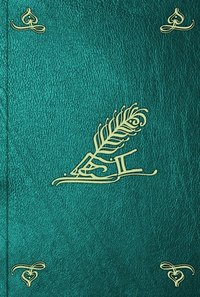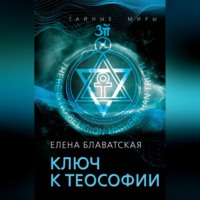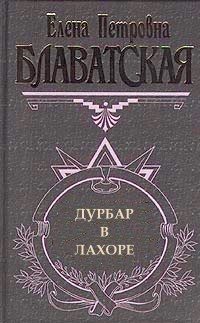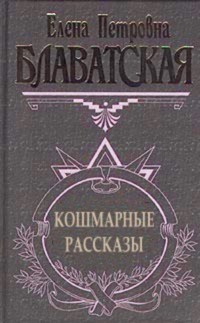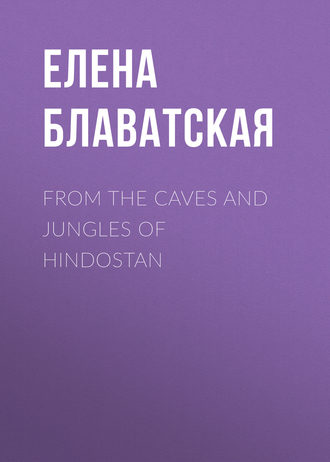 полная версия
полная версияFrom the Caves and Jungles of Hindostan
The ignorant masses are often blamed and found to be guilty of superstition for creating idols in the spiritual world. Is not, then, the educated man, the man who craves after knowledge, who is enlightened, still more inconsistent than these masses, when he deals with his favorite authorities? Are not half a dozen laurel-crowned heads allowed by him to do whatever they like with facts, to draw their own conclusions, according to their own liking, and does he not stone every one who would dare to rise against the decisions of these quasi-infallible specialists, and brand him as an ignorant fool?
Let us remember the case in point of Louis Jacolliot, who spent twenty years in India, who actually knew the language and the country to perfection, and who, nevertheless, was rolled in the mud by Max Muller, whose foot never touched Indian soil.
The oldest peoples of Europe are mere babes com-pared with the tribes of Asia, and especially of India. And oh! how poor and insignificant are the genealogies of the oldest European families compared with those of some Rajputs. In the opinion of Colonel Tod, who for over twenty years studied these genealogies on the spot, they are the completest and most trustworthy of the records of the peoples of antiquity. They date from 1,000 to 2,200 years B.C., and their authenticity may often be proved by reference to Greek authors. After long and careful research and comparison with the text of the Puranas, and various monumental inscriptions, Colonel Tod came to the conclusion that in the Oodeypore archives (now hidden from public inspection), not to mention other sources, may be found a clue to the history of India in particular, and to universal ancient history in general. Colonel Tod advises the earnest seeker after this clue not to think, with some flippant archaeologists who are insufficiently acquainted with India, that the stories of Rama, the Mahabharata, Krishna, and the five brothers Pandu, are mere allegories. He affirms that he who seriously considers these legends will very soon become thoroughly convinced that all these so-called "fables" are founded on historical facts, by the actual existence of the descendants of the heroes, by tribes, ancient towns, and coins still extant; that to acquire the right to pronounce a final opinion one must read first the inscriptions on the Inda-Prestha pillars of Purag and Mevar, on the rocks of Junagur, in Bijoli, on Aravuli and on all the ancient Jaina temples scattered throughout India, where are to be found numerous inscriptions in a language utterly unknown, in comparison with which the hieroglyphs will seem a mere toy.
Yet, nevertheless, Professor Max Muller, who, as already mentioned, was never in India, sits as a judge and corrects chronological tables as is his wont, and Europe, taking his words for those of an oracle, endorses his decisions. Et c'est ainsi que s'ecrit l'histoire.
Talking of the venerable German Sanskritist's chronology, I cannot resist the desire to show, be it only to Russia, on what a fragile basis are founded his scientific discussions, and how little he is to be trusted when he pronounces upon the antiquity of this or that manuscript. These pages are of a superficial and descriptive nature, and, as such, make no pretense to profound learning, so that what follows may seem incongruous. But it must be remembered that in Russia, as elsewhere in Europe, people estimate the value of this philological light by the points of exclamation lavished upon him by his admiring followers, and that no one reads the Veda Bhashaya of Swami Dayanand. It may even be that I shall not be far from the truth in saying that the very existence of this work is ignored, which may perhaps be a fortunate fact for the reputation of Professor Max Muller. I shall be as brief as possible. When Professor Max Muller states, in his Sahitya-Grantha, that the Aryan tribe in India acquired the notion of God step by step and very slowly, he evidently wishes to prove that the Vedas are far from being as old as is supposed by some of his colleagues. Having presented, in due course, some more or less valuable evidence to prove the truth of this new theory, he ends with a fact which, in his opinion, is indisputable. He points to the word hiranya-garbha in the mantrams, which he translates by the word "gold," and adds that, as the part of the Vedas called chanda appeared 3,100 years ago, the part called mantrams could not have been written earlier than 2,900 years ago. Let me remind the reader that the Vedas are divided into two parts: chandas—slokas, verses, etc.; and mantrams—prayers and rhythmical hymns, which are, at the same time, incantations used in white magic. Professor Max Muller divides the mantram ("Agnihi Poorwebhihi," etc.) philologically and chronologically, and, finding in it the word hiranya-garbha, he denounces it as an anachronism. The ancients, he says, had no knowledge of gold, and, therefore, if gold is mentioned in this mantram it means that the mantram was composed at a comparatively modern epoch, and so on.
But here the illustrious Sanskritist is very much mistaken. Swami Dayanand and other pandits, who sometimes are far from being Dayanand's allies, maintain that Professor Max Muller has completely misunderstood the meaning of the term hiranya. Originally it did not mean, and, when united to the word garbha, even now does not mean, gold. So all the Professor's brilliant demonstrations are labor in vain. The word hiranya in this mantram must be translated "divine light"—mystically a symbol of knowledge; analogically the alchemists used the term "sublimated gold" for "light," and hoped to compose the objective metal out of its rays. The two words, hiranya-garbha, taken together, mean, literally, the "radiant bosom," and, when used in the Vedas, designate the first principle, in whose bosom, like gold in the bosom of the earth, rests the light of divine knowledge and truth, the essence of the soul liberated from the sins of the world. In the mantrams, as in the chandas, one must always look for a double meaning: (1) a metaphysical one, purely abstract, and (2) one as purely physical; for everything existing upon the earth is closely bound to the spiritual world, from which it proceeds and by which it is reabsorbed. For instance Indra, the god of thunder, Surya, the sun-god, Vayu, god of the wind, and Agni, god of fire, all four depending on this first divine principle, expand, according to the mantram from hiranya-garbha, the radiant bosom. In this case the gods are the personifications of the forces of Nature. But the initiated Adepts of India understand very clearly that the god Indra, for instance, is nothing more than a mere sound, born of the shock of electrical forces, or simply electricity itself. Surya is not the god of the sun, but simply the centre of fire in our system, the essence whence come fire, warmth, light, and so on; the very thing, namely, which no European scientist, steering an even course between Tyndall and Schropfer, has, as yet, defined. This concealed meaning has totally escaped Professor Max Muller's attention, and this is why, clinging to the dead letter, he never hesitates before cutting a Gordian knot. How then can he be permitted to pronounce upon the antiquity of the Vedas, when he is so far from the right understanding of the language of these ancient writings.
The above is a resume of Dayanand's argument, and to him the Sanskritists must apply for further particulars, which they will certainly find in his Rigvedadi Bhashya Bhoomika.
In the cave, every one slept soundly round the fire except myself. None of my companions seemed to mind in the least either the hum of the thousand voices of the fair, or the prolonged, far-away roar of the tigers rising from the valley, or even the loud prayers of the pilgrims who passed to and fro all night long, never fearing to cross the steep passage which, even by daylight, caused us such perplexity. They came in parties of twos and threes, and sometimes there appeared a lonely unescorted woman. They could not reach the large vihara, because we occupied the verandah at its entrance, and so, after grumbling a little, they entered a small lateral cave something like a chapel, containing a statue of Devaki-Mata, above a tank full of water. Each pilgrim prostrated himself for a time, then placed his offering at the feet of the goddess and bathed in the "holy waters of purification," or, at the least, sprinkled some water over his forehead, cheeks, and breast. Lastly, retreating backwards, he knelt again at the door and disappeared in the darkness with a final invocation: "Mata, maha mata!"—Mother, O great mother!
Two of Gulab-Sing's servants, with traditional spears and shields of rhinoceros skin, who had been ordered to protect us from wild beasts, sat on the steps of the verandah. I was unable to sleep, and so watched with increasing curiosity everything that was going on. The Takur, too, was sleepless. Every time I raised my eyes, heavy with fatigue, the first object upon which they fell was the gigantic figure of our mysterious friend.
Having seated himself after the Eastern fashion, with his feet drawn up and his arms round his knees, the Rajput sat on a bench cut in the rock at one end of the verandah, gazing out into the silvery atmosphere. He was so near the abyss that the least incautious movement would expose him to great danger. But the granite goddess, Bhavani herself, could not be more immovable. The light of the moon before him was so strong that the black shadow under the rock which sheltered him was doubly impenetrable, shrouding his face in absolute darkness. From time to time the flame of the sinking fires leaping up shed its hot reflection on the dark bronze face, enabling me to distinguish its sphinx-like lineaments and its shining eyes, as unmoving as the rest of the features.
"What am I to think? Is he simply sleeping, or is he in that strange state, that temporary annihilation of bodily life?… Only this morning he was telling us how the initiate Raj-yogis were able to plunge into this state at will… Oh, if I could only go to sleep....."
Suddenly a loud prolonged hissing, quite close to my ear, made me start, trembling with indistinct reminiscences of cobras. The sound was strident and evidently came from under the hay upon which I rested. Then it struck one! two! It was our American alarum-clock, which always traveled with me. I could not help laughing at myself, and, at the same time, feeling a little ashamed of my involuntary fright.
But neither the hissing, nor the loud striking of the clock, nor my sudden movement, that made Miss X– raise her sleepy head, awakened Gulab-Sing, who still hung over the precipice. Another half hour passed. The far-away roar of the festivity was still heard, but everything round me was calm and still. Sleep fled further and further from my eyes. A fresh, strong wind arose, before the dawn, rustling the leaves and then shaking the tops of the trees that rose above the abyss. My attention became absorbed by the group of three Rajputs before me—by the two shield bearers and their master. I cannot tell why I was specially attracted at this moment by the sight of the long hair of the servants, which was waving in the wind, though the place they occupied was comparatively sheltered. I turned my eyes upon their Sahib, and the blood in my veins stood still. The veil of somebody's topi, which hung beside him, tied to a pillar, was simply whirling in the wind, while the hair of the Sahib himself lay as still as if it had been glued to his shoulders, not a hair moved, nor a single fold of his light muslin garment. No statue could be more motionless. What is this then? I said to myself. Is it delirium? Is this a hallucination, or a wonderful inexplicable reality? I shut my eyes, telling myself I must look no longer. But a moment later I again looked up, startled by a crackling sound from above the steps. The long, dark silhouette of some animal appeared at the entrance, clearly outlined against the pale sky. I saw it in profile. Its long tail was lashing to and fro. Both the servants rose swiftly and noiselessly and turned their heads towards Gulab-Sing, as if asking for orders. But where was Gulab-Sing? In the place which, but a moment ago, he occupied, there was no one. There lay only the topi, torn from the pillar by the wind. I sprang up: a tremendous roar deafened me, filling the vihara, wakening the slumbering echoes, and resounding, like the softened rumbling of thunder, over all the borders of the precipice. Good heavens! A tiger!
Before this thought had time to shape itself clearly in my mind, the sleepers sprang up and the men all seized their guns and revolvers, and then we heard the sound of crashing branches, and of something heavy sliding down into the precipice. The alarm was general.
"What is the matter now?" said the calm voice of Gulab-Sing, and I again saw him on the stone bench. "Why should you be so frightened?"
"A tiger! Was it not a tiger?" came in hasty, questioning tones from Europeans and Hindus.
Miss X– trembled like one stricken with fever. "Whether it was a tiger, or something else, matters very little to us now. Whatever it was, it is, by this time, at the bottom of the abyss," answered the Rajput yawning.
"I wonder the Government does not destroy all these horrid animals," sobbed poor Miss X–, who evidently believed firmly in the omnipotence of her Executive.
"But how did you get rid of the 'striped one'?" insisted the colonel. "Has anyone fired a shot?"
"You Europeans think that shooting is, if not the only, at least the best way to get rid of wild animals. We possess other means, which are sometimes more efficacious than guns," explained Babu Narendro-Das Sen. "Wait until you come to Bengal, there you will have many opportunities to make acquaintance with the tigers."
It was now getting light, and Gulab-Sing proposed to us to descend and examine the rest of the caves and the ruins of a fortress before the day became too hot, so, at half-past three, we went by another and easier way to the valley, and, happily, this time we had no adventures. The Mahratti did not accompany us. He disappeared without informing us whither he was going.
We saw Logarh, a fortress which was captured by Sivaji from the Moguls in 1670, and the ruins of the hall, where the widow of Nana Farnavese, under the pretext of an English protectorate, became de facto the captive of General Wellesley in 1804, with a yearly pension of 12,000 rupees. We then started for the village of Vargaon, once fortified and still very rich. We were to spend the hottest hours of the day there, from nine in the morning until four in the afternoon, and proceed afterwards to the historical caves of Birsa and Badjah, about three miles from Karli.
At about two P.M. when, in spite of the huge punkahs waving to and fro, we were grumbling at the heat, appeared our friend the Mahratta Brahman, whom we thought we had lost on the way. Accompanied by half-a-dozen Daknis (inhabitants of the Dekhan plateau) he was slowly advancing, seated almost on the ears of his horse, which snorted and seemed very unwilling to move. When he reached the verandah and jumped down, we saw the reason of his disappearance. Across the saddle was tied a huge tiger, whose tail dragged in the dust. There were traces of dark blood in his half opened mouth. He was taken from the horse and laid down by the doorstep.
Was it our visitor of the night before? I looked at Gulab-Sing. He lay on a rug in a corner, resting his head on his hand and reading. He knitted his brows slightly, but did not say a word. The Brahman who had just brought the tiger was very silent too, watching over certain preparations, as if making ready for some solemnity. We soon learned that, in the eyes of a superstitious people, what was about to happen was a solemnity indeed.
A bit of hair cut from the skin of a tiger that has been killed, neither by bullet, nor by knife, but by a "word," is considered the best of all talismans against his tribe.
"This is a very rare opportunity," explained the Mahratti. "It is very seldom that one meets with a man who possesses the word. Yogis and Sadhus do not generally kill wild animals, thinking it sinful to destroy any living creature, be it even a cobra or a tiger, so they simply keep out of the way of noxious animals. There exists only one brotherhood in India whose members possess all secrets, and from whom nothing in nature is concealed. Here is the body of the tiger to testify that the animal was not killed with a weapon of any kind, but simply by the word of Gulab-Lal-Sing. I found it, very easily, in the bushes exactly under our vihara, at the foot of the rock over which the tiger had rolled, already dead. Tigers never make false steps. Gulab-Lal-Sing, you are a Raj-Yogi, and I salute you!" added the proud Brahman, kneeling before the Takur.
"Do not use vain words, Krishna Rao!" interrupted Gulab-Sing. "Get up; do not play the part of a Shudra."
"I obey you, Sahib, but, forgive me, I trust my own judgment. No Raj-Yogi ever yet acknowledged his connection with the brotherhood, since the time Mount Abu came into existence."
And he began distributing bits of hair taken from the dead animal. No one spoke, I gazed curiously at the group of my fellow-travelers. The colonel, President of our Society, sat with downcast eyes, very pale. His secretary, Mr. Y–, lay on his back, smoking a cigar and looking straight above him, with no expression in his eyes. He silently accepted the hair and put it in his purse. The Hindus stood round the tiger, and the Sinhalese traced mysterious signs on its forehead. Gulab-Sing continued quietly reading his book.–
The Birza cave, about six miles from Vargaon, is constructed on the same plan as Karli. The vault-like ceiling of the temple rests upon twenty-six pillars, eighteen feet high, and the portico on four, twenty-eight feet high; over the portico are carved groups of horses, oxen, and elephants, of the most exquisite beauty. The "Hall of Initiation" is a spacious, oval room, with pillars, and eleven very deep cells cut in the rock. The Bajah caves are older and more beautiful. Inscriptions may still be seen showing that all these temples were built by Buddhists, or, rather, by Jainas. Modern Buddhists believe in one Buddha only, Gautama, Prince of Kapilavastu (six centuries before Christ) whereas the Jainas recognize a Buddha in each of their twenty-four divine teachers (Tirthankaras) the last of whom was the Guru (teacher) of Gautama. This disagreement is very embarrassing when people try to conjecture the antiquity of this or that vihara or chaitya. The origin of the Jaina sect is lost in the remotest, unfathomed antiquity, so the name of Buddha, mentioned in the inscriptions, may be attributed to the last of the Buddhas as easily as to the first, who lived (see Tod's genealogy) a long time before 2,200 B.C.
One of the inscriptions in the Baira cave, for instance, in cuneiform characters, says: "From an ascetic in Nassik to the one who is worthy, to the holy Buddha, purified from sins, heavenly and great."
This tends to convince scientists that the cave was cut out by Buddhists.
Another inscription, in the same cave, but over an-other cell, contains the following: "An agreeable offering of a small gift to the moving force [life], to the mind principle [soul], the well-beloved material body, fruit of Manu, priceless treasure, to the highest and here present, Heavenly."
Of course the conclusion is drawn that the building does not belong to the Buddhists, but to the Brahmans, who believe in Manu.
Here are two more inscriptions from Bajah caves.
"An agreeable gift of the symbol and vehicle of the purified Saka-Saka."
"Gift of the vehicle of Radha [wife of Krishna, symbol of perfection] to Sugata who is gone for ever."
Sugata, again, is one of the names of Buddha. A new contradiction!
It was somewhere here, in the neighborhood of Vargaon, that the Mahrattis seized Captain Vaughan and his brother, who were hanged after the battle of Khirki.
Next morning we drove to Chinchor, or, as it is called here, Chinchood. This place is celebrated in the annals of the Dekkan. Here one meets with a repetition in miniature of what takes place on a larger scale at L'hassa in Tibet. As Buddha incarnates in every new Dalai-Lama, so, here, Gunpati (Ganesha, the god of wisdom with the elephant's head) is allowed by his father Shiva to incarnate in the eldest son of a certain Brahman family. There is a splendid temple erected in his honor, where the avatars (incarnations) of Gunpati have lived and received adoration for over two hundred years.
This is how it happened.
About 250 years ago a poor Brahman couple were promised, in sleep, by the god of wisdom that he would incarnate in their eldest son. The boy was named Maroba (one of the god's titles) in honor of the deity. Maroba grew up, married, and begot several sons, after which he was commanded by the god to relinquish the world and finish his days in the desert. There, during twenty-two years, according to the legend, Maroba wrought miracles and his fame grew day by day. He lived in an impenetrable jungle, in a corner of the thick forest that covered Chinchood in those days. Gunpati appeared to him once more, and promised to incarnate in his descendants for seven generations. After this there was no limit to his miracles, so that the people began to worship him, and ended by building a splendid temple for him.
At last Maroba gave orders to the people to bury him alive, in a sitting posture, with an open book in his hands, and never to open his grave again under penalty of his wrath and maledictions. After the burial of Maroba, Gunpati incarnated in his first-born, who began a conjuring career in his turn. So that Maroba-Deo I, was replaced by Chintaman-Deo I. This latter god had eight wives and eight sons. The tricks of the eldest of these sons, Narayan-Deo I, became so celebrated that his fame reached the ears of the Emperor Alamgir. In order to test the extent of his "deification," Alamgir sent him a piece of a cow's tail wrapped in rich stuffs and coverings. Now, to touch the tail of a dead cow is the worst of all degradations for a Hindu. On receiving it Narayan sprinkled the parcel with water, and, when the stuffs were unfolded, there was found enclosed in them a nosegay of white syringa, instead of the ungodly tail. This transformation rejoiced the Emperor so much that he presented the god with eight villages, to cover his private expenses. Narayan's social position and property were inherited by Chintaman-Deo II., whose heir was Dharmadhar, and, lastly, Narayan II came into power. He drew down the malediction of Gunpati by violating the grave of Maroba. That is why his son, the last of the gods, is to die without issue.
When we saw him he was an aged man, about ninety years old. He was seated on a kind of platform. His head shook and his eyes idiotically stared without seeing us, the result of his constant use of opium. On his neck, ears, and toes, shone precious stones, and all around were spread offerings. We had to take off our shoes before we were allowed to approach this half-ruined relic.–
On the evening of the same day we returned to Bombay. Two days later we were to start on our long journey to the North-West Provinces, and our route promised to be very attractive. We were to see Nassik, one of the few towns mentioned by Greek historians, its caves, and the tower of Rama; to visit Allahabad, the ancient Prayaga, the metropolis of the moon dynasty, built at the confluence of the Ganges and Jumna; Benares, the town of five thousand temples and as many monkeys; Cawnpur, notorious for the bloody revenge of Nana Sahib; the remains of the city of the sun, destroyed, according to the computations of Colebrooke, six thousand years ago; Agra and Delhi; and then, having explored Rajistan with its thousand Takur castles, fortresses, ruins, and legends, we were to go to Lahore, the metropolis of the Punjab, and, lastly, to stay for a while in Amritsar. There, in the Golden Temple, built in the centre of the "Lake of Immortality," was to be held the first meeting of the members of our Society, Brahmans, Buddhists, Sikhs, etc.—in a word, the representatives of the one thousand and one sects of India, who all sympathized, more or less, with the idea of the Brotherhood of Humanity of our Theosophical Society.
Vanished Glories
Benares, Prayaga (now Allahabad), Nassik, Hurdwar, Bhadrinath, Matura—these were the sacred places of prehistoric India which we were to visit one after the other; but to visit them, not after the usual manner of tourists, a vol d'oiseau, with a cheap guide-book in our hands and a cicerone to weary our brains, and wear out our legs. We were well aware that all these ancient places are thronged with traditions and overgrown with the weeds of popular fancy, like ruins of ancient castles covered with ivy; that the original shape of the building is destroyed by the cold embrace of these parasitic plants, and that it is as difficult for the archaeologist to form an idea of the architecture of the once perfect edifice, judging only by the heaps of disfigured rubbish that cover the country, as for us to select from out the thick mass of legends good wheat from weeds. No guides and no cicerone could be of any use whatever to us. The only thing they could do would be to point out to us places where once there stood a fortress, a castle, a temple, a sacred grove, or a celebrated town, and then to repeat legends which came into existence only lately, under the Mussulman rule. As to the undisguised truth, the original history of every interesting spot, we should have had to search for these by ourselves, assisted only by our own conjectures.


